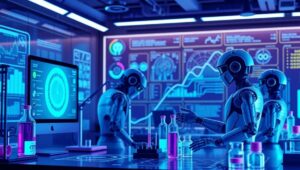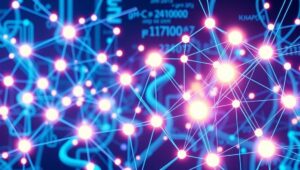May 19, 2025
The Future of AI in Scientific Discovery (Post-2025 Breakthroughs)
The Future of AI in Scientific Discovery (Post-2025 Breakthroughs) The intersection of artificial intelligence (AI) and scientific research is rapidly evolving. As we move beyond 2025, AI is poised to revolutionize scientific discovery, accelerating research processes, enhancing data analysis, and unlocking insights previously unattainable. This article explores the potential breakthroughs and applications of AI in various scientific fields. Enhanced Data Analysis One of AI’s most significant contributions to scientific discovery lies in its ability to process and analyze vast datasets. Traditional methods often fall short when dealing with the sheer volume and complexity of data generated by modern scientific experiments.





